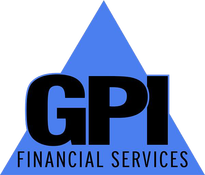|
The time when the IRS offers relief from financial penalties to employers that make errors on their group health insurance reporting forms has come to an end. Starting this year, the IRS will no longer offer protection against reporting error penalties when "applicable large employers" (ALEs) file their Forms 1094-C and 1095-C and the employer has made a good-faith effort to comply. The change starting with the 2021 tax reporting year means that employers can face steep penalties for mistakes on their forms. IRS Code requires employers who are obligated under the Affordable Care Act to offer their employees health insurance benefits to also file these forms annually. But since employers were required to first start filing these forms in 2018, the IRS has been lenient against those that make good-faith errors on the forms. Typically, when the IRS identifies instances when an employer may be liable for employer shared-responsibility penalties based on information provided on the forms, the agency will send the employer a Letter 226J. These letters will identify an employee who may have received health insurance from their employer but is also receiving premium tax credits from a policy on an exchange. To date, the IRS has allowed ALEs to ask for corrections on their filed forms, or to reduce the penalty without imposing reporting error penalties as well. That comes to an end this year when employers file their 2021 forms. Issues to bear in mindHere are a few issues businesses need to be aware of:
Important datesJan. 31, 2022: Deadline for furnishing 1095-C forms to employees.
Feb. 28, 2022: Deadline to file paper 1094-C and 1095-C forms with the IRS (only for employers with fewer than 250 employees). March 31, 2022: Deadline to file forms electronically with the IRS.
0 Comments
Leave a Reply. |
Media Inquiries(404) 484-3638 Archives
July 2023
Categories
All
|
Licensed in Georgia, Alabama, California, Florida, North Carolina, Ohio, South Carolina, and Virginia
Navigation |
Connect With UsShare This Page |
Contact UsGPI Financial Services2400 Herodian Way SESuite#220
Smyrna, GA 30080 (404) 484-3638 Click Here to Email Us |
Location |
Website by InsuranceSplash


 RSS Feed
RSS Feed